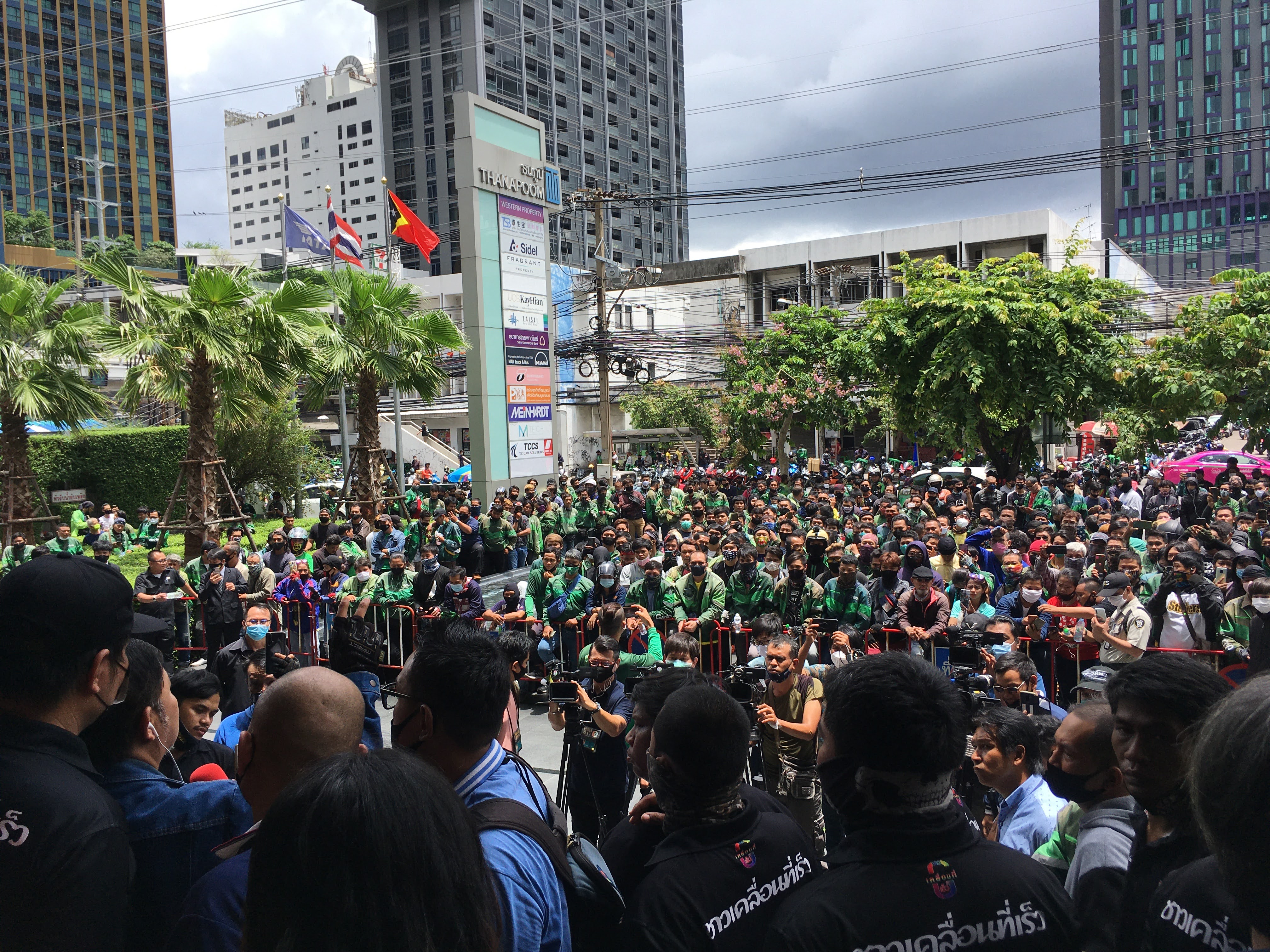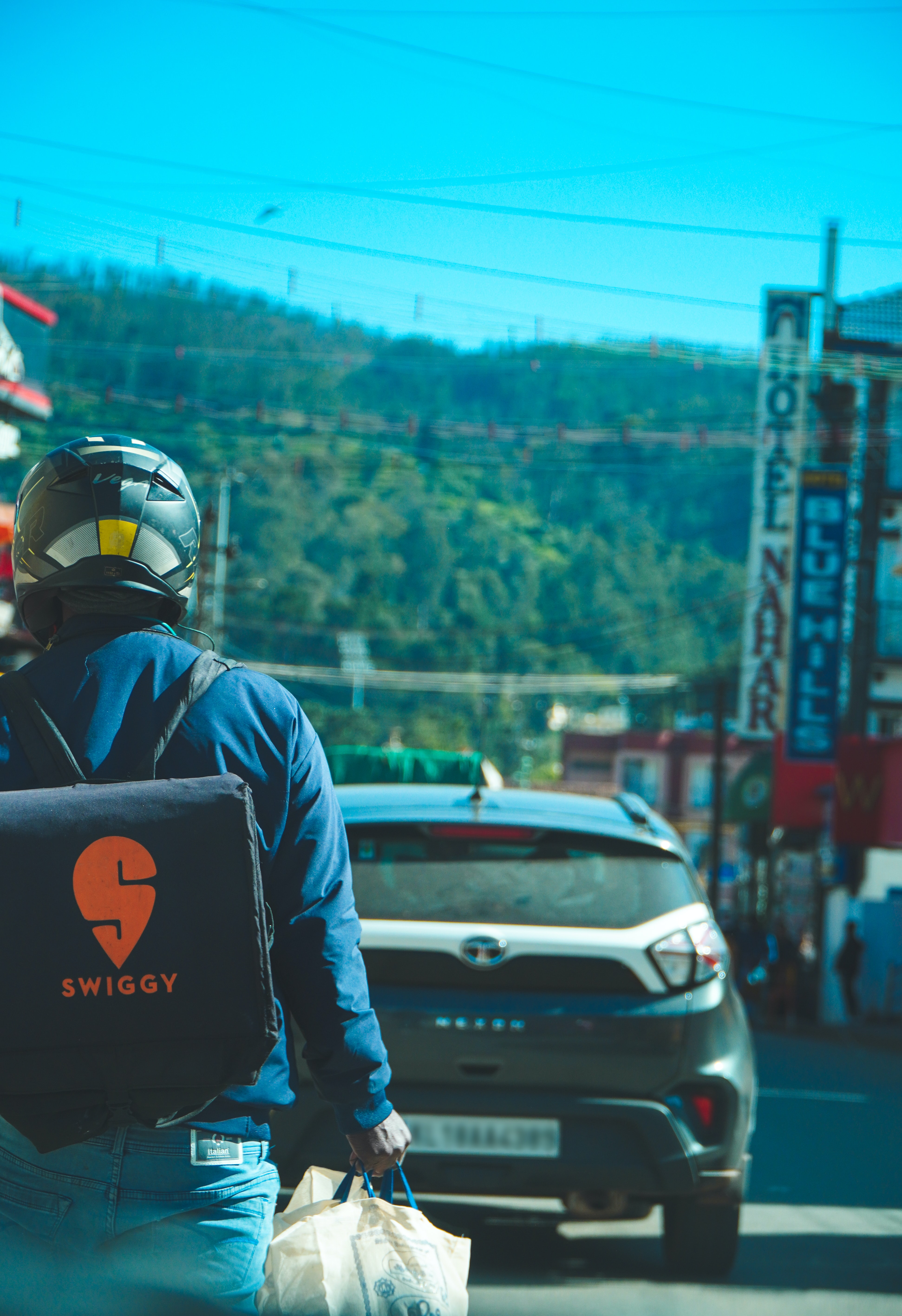The gig economy has boomed globally since the COVID-19 pandemic, especially in Southeast Asia, after a decade or so of rapid growth. The reliance of consumers upon on-demand delivery during lockdowns, and the pivoting of livelihoods for millions of people as a result of economic upheaval, have meant the gig economy is now more central to households and economies across the region than it was a few years ago, writes Gerard McCarthy
_______________________________________________
A workshop in October 2022 hosted by the LSE Saw Swee Hock Southeast Asia Centre (SEAC) in partnership with the National University of Singapore’s Asia Research Institute grappled with the implications of these shifting dynamics. Drawing Southeast Asia into comparative conversation with research from Africa, the Middle East and other Asian contexts, the workshop examined how and why the largely ‘hands off’ or laissez-faire policy approach that has governed the gig economy over the past decade is beginning to be challenged in the wake of COVID-19.
State-labour-business tensions within the Southeast Asian gig economy have become increasingly hard to ignore, especially since the pandemic. Workers are finding themselves burnt out and frustrated by ever more stringent algorithms, which often shift incentives and delivery fees at a moments’ notice and allocate jobs in ways many see as arbitrary. These algorithms markedly determine whether drivers and riders can make ends meet from gig work yet they largely sit outside the domain of employment law and labour regulation. Our understanding of this evolving sector in recent years has been clouded by pandemic restrictions on fieldwork, making it crucial to theorise directly from the lived experiences of gig workers in the region.
For the past decade or so gig workers have been framed as unlikely to mobilise for business or policy change as their work arrangements atomise them from colleagues but offer them lucrative incentives (at least initially). Some drivers and riders certainly do see themselves as empowered by gig work to be their own bosses and use it as an important supplement to income gaps. Yet interviews and surveys of workers suggest a chunk of the sector – both casual workers and full-timers – are overstretched, exhausted and increasingly indebted. In an Institute of Policy Studies survey conducted in 2022 in Singapore, for instance, seven out of ten delivery workers were worried about not being able to earn enough if incentives changed, while half said they had mounting debts to clear. Meanwhile, two in five said they would leave the food delivery industry as soon as possible if they had job opportunities in other industries.
Despite the stereotype of gig workers as largely satisfied and atomised, the precarious livelihoods faced by gig workers in recent years have led a growing number of riders and drivers in developing countries to organise themselves – especially since the onset of COVID-19. From Thailand and Myanmar to Singapore and Indonesia new forms of agency and protest are emerging as workers turn to social media to organise themselves. At the workshop, LSE Geography PhD student, Yorga Permana, conceptualised the response of gig workers in Indonesia to these pressures as sitting along two key dimensions: agency and resistance. Informed by research with gig workers in Indonesia throughout the pandemic, Yorga sketches out a typology varying from individual agency – such as improving their customer service or upgrading their vehicle (individual entrepreneurialism) or more systematically gaming incentives (individual resistance) – towards more group efforts at addressing risks and exploitation through mutual aid (collective resilience) or confrontational collective bargaining with companies or government (collective resistance).
Similar individual and collective strategising is unfolding in Thailand. As Chulalongkorn University PhD student Akkanut Wantanasombut recounts in his SEAC blog post, gig work is increasingly the subject of legal wrangling between established car and motorcycle taxi drivers. The result is the layering of informality, as ambiguity about the legality of motorcycle taxis has collided with the enthusiasm of Thai authorities to encourage digital innovation by legalising apps that rely upon technically illegal riders.
Similar discontents amongst gig workers and strategies of platforms are evident in the case of India’s quick commerce sector where deliveries of consumer goods are made within 10 minutes of ordering. As Oxford University PhD student Khawla Zainab notes in her post in this series, platforms have sought to adapt their models and incentives to placate the growing segment of workers burned out by platform work and to continue to attract venture capital. With quick-commerce, instead of driving around entire cities workers are employed to work shifts completing orders from fulfilment centres with a delivery radius of 1 or 2 kilometres – creating a regularity and predictability to their roster and incomes. They are also often issued with branded merchandise and specific line managers and provided delivery incentives. However, they are still legally classed as individual entrepreneurs contracted by platform companies. At what point do more regularised collective arrangements begin to make more sense, not just for workers but also for platforms and financiers? And when do political entrepreneurs begin to realise that improving labour standards in the gig economy might be electorally successful for them too?
The problem of diverse worker experiences and vantages, but also of precarity exacerbated by algorithmic governance, raises questions about which constituencies governments choose to prioritise in regulation – whether that be different worker interests, platform giants or consumers. Governments in Southeast Asia have largely taken a hands-off approach to the gig economy so far, treating it as an infant industry that is digitising traditional sectors of the economy such as hospitality and logistics. Yet as conditions in the gig economy become increasingly exploitative and workers get more and more agitated, will governments realise the human, economic and political risks of leaving an entire sector of the economy largely unregulated?
As I examine in a forthcoming working paper for LSE SEAC, recent governmental approaches to platform capitalism in Singapore and Thailand are heavily shaped both by existing social models and the political economy surrounding the gig economy. In Singapore, for instance, policy interventions have not responded to worker agitation directly. Instead, they have come about as a result of technocratic concerns that workers who are not accruing savings through their gig work are falling out of the Singapore social model of purchasing public housing as a lifetime asset that reduces their reliance on the state. Reflecting this, interventions into the sector, which come into effect this year, are focused on ensuring workers and employers contribute to savings accounts – even if top-ups are funded entirely through substantial declines in their take-home pay at a moment of historic cost-of-living pressures. Meanwhile, in Thailand authorities have responded with a largely hands-off approach even to basic issues such as riders being uninsured for accidents whilst on the job. Instead they have emphasized the value of the gig-economy in bringing digital innovation while encouraging companies to provide social protection.
As Khawla Zainab notes in her post, economic and social crises are beginning to crack the speculative financial models which have lubricated platform capitalism for the past decade. As the cheap lines of credit that underwrote the platform boom dry up with rising interest rates, pressure is mounting on gig economy giants in both developed and developing countries to prove their profitability. In late 2022, for instance, leading platform app Deliveroo went into administration in Australia and The Netherlands amid intensifying pressure from regulators and heightened pressure from financiers for return-on-investment. Southeast Asian apps face similar challenges. For instance loss making platform giant Grab floated on the New York Stock Exchange in 2021 with a valuation of US$40 billion. Promising anxious shareholders it will become profitable by 2024, since early 2022 it has unilaterally slashed incentives, delivery fees and driver take-home across the region, giving riders and drivers either no or just a few days notice. For riders and drivers, the instability in the gig economy house of cards means even less time between jobs and the evaporation of incentives which had been central to their livelihoods – both factors that are encouraging workers into coordination and organisation.
The gig economy is rapidly evolving – financially, socially and politically – and the old stereotypes of platform workers as atomised and satisfied are clearly less true than ever. New research and advocacy collaborations are crucial to keep up with the changing landscape and to theorise and strategise its consequences for workers, consumers and policy makers in Southeast Asia and beyond.
______________________________________________
*Banner photo by Fikri Rasyid on Unsplash
*The views expressed in the blog are those of the authors alone. They do not reflect the position of the Saw Swee Hock Southeast Asia Centre, nor that of the London School of Economics and Political Science.




